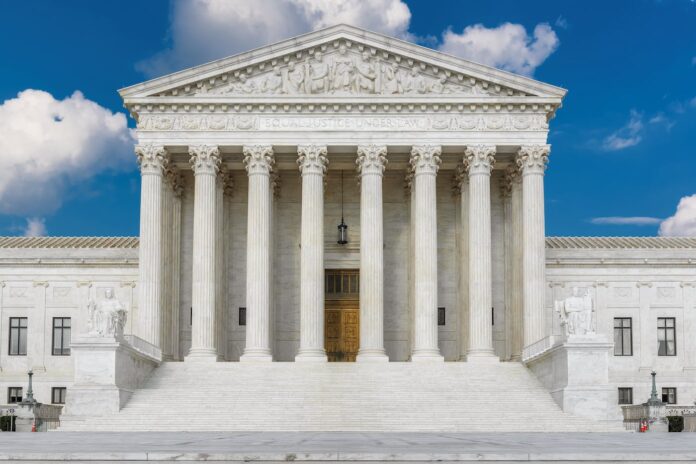Calif., Ill., Maine, and Minn. – Courtroom drama playing out in four states could have widespread ramifications for the industry as a whole.
At issue in Northeast Patients Group et al. v. Figueroa is whether states can regulate the cannabis industry in ways that would violate the Constitution’s dormant commerce clause were the rules applied to any other industry. Maine argues it can prohibit licensure of nonresidents because the clause, which mandates states not interfere with interstate commerce, is moot when applied to a sector that can’t engage in interstate commerce in the first place. The case, before the First Circuit Court of Appeals, is expected to set precedent for whether residency rules may be enforced.
In Illinois, Wm. Wrigley Jr. Company has leveled intellectual-property infringement charges against Terphogz LLC, claiming the cannabis brand’s Zkittlez product and marketing campaign represent a willful misappropriation of Wrigley’s Skittles trademark. Terphogz twice tried to have the case dismissed over jurisdictional technicalities, but Wm. Wrigley Jr. Company v. Terphogz LLC remains on the docket in the Northern District of Illinois. If Wrigley is successful in its pursuit of treble damages, expect a rush of similar cases, especially with regard to strain names.
A pair of Minnesota cases, Bierbach v. Digger’s Polaris and Musta v. Mendota Heights Dental Center, seek a U.S. Supreme Court ruling on whether states can require employers to cover the cost of medical cannabis prescribed for work-related injuries. The respondents in both cases claim the Controlled Substances Act preempts such action. SCOTUS has asked the U.S. Solicitor General to weigh in, giving the Department of Justice an ideal opportunity to resurrect the Cole Memorandum’s laissez faire policy former Attorney General Jeff Sessions rescinded in 2018.
Empyreal Enterprises LLC v. United States is less notable for what it seeks—a halt to alleged law-enforcement harassment and the return of seized funds—than for how the case is proceeding. Empyreal sought an emergency order halting further action by law enforcement. U.S. District Court Judge John W. Holcomb denied the request but allowed Empyreal to move forward with a standard motion for relief. Among the questions the case raises is whether companies that don’t touch the plant can be subject to interstate commerce restrictions.










